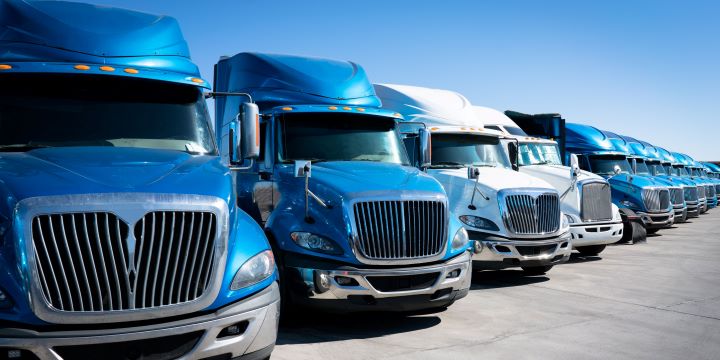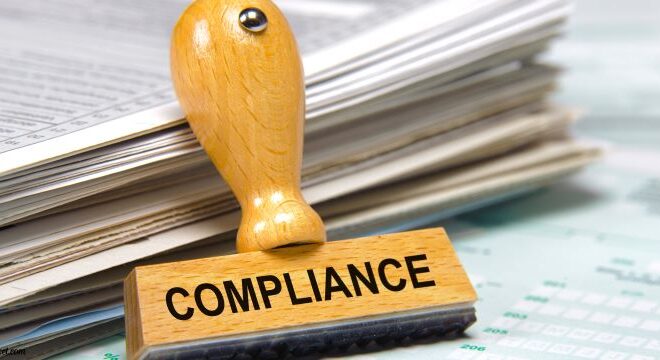
How to Improve Efficiency in Fleet Management Through Fuel Cards
Table of Contents:
- Introduction to Fleet Efficiency
- Understanding Fuel Cards and Their Role in Fleet Management
- Leveraging Fuel Cards for Enhanced Monitoring and Reporting
- Cost-Benefit Analysis of Implementing Fuel Cards
- Fuel Cards as a Tool for Fraud Prevention and Security
- The Environmental Impact of Using Fuel Cards
- Integrating Fuel Cards with Fleet Management Software
- Choosing the Right Fuel Card Program for Your Fleet
- Training Your Team on Fuel Card Usage and Policies
- Future Trends in Fuel Management and Fleet Operations
Key Takeaways
- Fuel cards are essential tools for streamlining fleet operations.
- They offer valuable data for cost-saving decisions and fraud prevention.
- Choosing the right fuel card program can improve your fleet’s operational efficiency and environmental benefits.
Introduction to Fleet Efficiency
Fleet management efficiency is more than just getting from point A to B. It’s a comprehensive approach encompassing everything from vehicle maintenance to route planning and fuel management. With fuel often being the most significant variable cost in fleet operations, managing it effectively is essential for maintaining a competitive edge. Innovative solutions such as CFN fuel cards are changing the landscape, providing fleet managers with unparalleled control and oversight of fuel expenses. These cards serve as a linchpin for reducing waste, saving money, and ensuring fleet operations positively contribute to a company’s profitability.
Understanding Fuel Cards and Their Role in Fleet Management
At their core, fuel cards are specialized payment instruments designed to purchase gasoline, diesel, and other fuels at gas stations. Their functionality extends beyond mere payment facilitation; they also offer comprehensive tracking of every gallon pumped and penny spent. This enables businesses to enjoy streamlined billing processes and often lower fuel prices. The real power of fuel cards lies in the data they collect. They track spending patterns, monitor fuel usage, and provide insights that are not possible with traditional forms of payment. By keeping tabs on all these metrics, companies can better manage their resources and make informed decisions that could lead to significant cost savings and increased accountability on the road.
Leveraging Fuel Cards for Enhanced Monitoring and Reporting
Any fleet operation’s capacity to gather, process, and use data is directly related to its effectiveness. Fuel cards have detailed reporting functions that put essential information at managers’ fingertips. A routine glance at these reports can reveal anomalies in fuel consumption, identify underperforming vehicles, and even pinpoint drivers who may be using fuel inefficiently. These insights are instrumental in creating policies that promote optimal usage, effectively reducing costs, and establishing benchmarks for future performance evaluations. With the data accrued, businesses can engage in predictive analytics, forecasting future costs and demands with much greater accuracy.
Cost-Benefit Analysis of Implementing Fuel Cards
Any investment demands scrutiny, and fuel cards are no exception. Companies considering fuel cards should evaluate the immediate advantages, like discounts and reduced transaction fees, against the long-term gains from enhanced oversight and analytics. Studies have demonstrated that fuel cards can significantly lower operating costs through savings on fuel prices, fraud reduction, and administrative efficiencies. This blend of present and future benefits, measured against the cost of implementation and use, makes fuel cards appealing for businesses seeking control over their fleet expenses.
Fuel Cards as a Tool for Fraud Prevention and Security
Fuel theft and unauthorized spending are persistent concerns in fleet management. Modern fuel cards have robust security features to deter and detect fraudulent activities. By setting purchase limits and specifying the type of transactions allowed, companies can eliminate the opportunity for misuse. More than just protective measures, these security features serve as proactive tools, enabling managers to customize card usage based on company policies and driver needs.
The Environmental Impact of Using Fuel Cards
Increasingly, companies are held accountable not just for their financial performance but also for their environmental stewardship. Fuel cards can be an unexpected ally in the pursuit of sustainability. Through fuel cards’ analytical capabilities, fleets can optimize routes, reduce idle times, and encourage fuel-efficient driving behaviors. These changes contribute to a downward fuel consumption trend, directly correlating to reduced emissions. Embracing fuel cards aligns business practices with environmental goals, demonstrating a company’s commitment to operating responsibly and sustainably in today’s ecologically conscious market.
Integrating Fuel Cards with Fleet Management Software
The rise of digitization in fleet management has introduced software solutions that provide a panoramic view of fleet operations. Integrating fuel card data into these systems can maximize the utility of both tools. This integration allows for a seamless flow of information that enhances forecasting, budgeting, and operational management. Managers can utilize these combined resources to generate regular automated reports that provide actionable insights, streamlining the decision-making process and enabling them to swiftly act on strategies that bolster operational efficiency and reduce costs.
Choosing the Right Fuel Card Program for Your Fleet
As with any pivotal business decision, choosing a fuel card program must be a deliberate process that aligns with your company’s needs. Considerations should include analyzing the coverage of the card’s accepted locations, the financial incentives such as discounts and reward programs, and the robustness of the reporting tools provided. Negotiating terms that best fit your operational patterns is crucial, considering factors like fleet size, typical routes, and fuel consumption habits. Evaluating these critical elements ensures that you select a fuel card program that not only meets the current demands of your fleet but can also adapt to its evolving needs.
Training Your Team on Fuel Card Usage and Policies
Implementing a fuel card program is just the first step. Educating your team on its correct usage is imperative to realize its full potential. Comprehensive training ensures drivers understand the policies, including purchase restrictions and protocols to follow when issues arise. Continuous education and open communication can foster a culture of compliance and accountability. By equipping your team with the knowledge and understanding they need, you can foster an environment where fuel cards are used effectively and efficiently, thus maximizing the benefits for your fleet.
Future Trends in Fuel Management and Fleet Operations
The fleet management landscape is dynamic, with new trends and technologies emerging rapidly. Among these are the anticipated expansion of electric vehicle usage, advancements in fuel card technology, and the influence of global energy policies. Staying at the forefront of these changes is crucial for business continuity and competitiveness. Forward-thinking fleet managers will proactively explore and embrace these shifting paradigms, preparing their operations for the impact and opportunities they present. Adapting to and anticipating these trends will establish a robust foundation for the future of environmentally conscious and economically sound fleet management.



